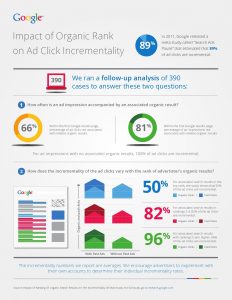
Optimizing for local search is of utmost importance if your business operates locally; only the first five results appear on Google SERP are clicked by audiences.
Enhancing visibility and performance requires employing various strategies, such as keyword research, onsite optimization, directory submissions, online reviews and social media. Here are some of the most successful: keyword research, directory submissions, online reviews and social media.
Keyword Research
Local SEO involves conducting keyword research that is specific to your service area and that searchers in that region are actively searching for. This research can be accomplished using various tools, including SEMRush (an all-in-one solution for SEO) or Google autocomplete.
One effective strategy to discover local keywords is by studying which terms your competitors are ranking for; you can do this using Ahrefs or another similar tool.
As another way of identifying local keywords, an easy and straightforward way to do keyword research is simply entering them into Google search and seeing which autocomplete suggestions come back up. This will give you a list of potential keywords which you can then use in creating a strategy for your business. By performing local keyword research, it can ensure your website appears for searches relevant to it – leading to increased traffic and additional customers.
On-Page Optimization
Local SEO should be part of every business’ marketing plan when they have both physical and online storefronts; it maximizes reach for omnichannel brands while making a real impactful difference to bottom lines.
Keyword research and on-page optimization are both key to increasing visibility in local SERPs, including optimizing page titles and meta descriptions with keywords people are searching for in your locality, as well as including them throughout website content.
As part of any local SEO strategy, registering in local directories is another key element. Make sure that your NAP (name, address and phone number) are consistent across these listings so that Google can better match you up with relevant search results.
Schema or structured data markup on web pages is also vitally important to Local SEO, making it easier for Google to understand what you do, where your location is and whether any products or services offered may be relevant for searches in that region.
Local Citations
Citations is an integral component of local SEO, the process which involves building and managing listings on business directories. Search results often feature these online listings, giving your business an opportunity to appear more prominently and attract more consumers. Furthermore, many local citations contain links which help increase its search algorithm rankings.
Citations, commonly known as references, can have an enormous effect on local SEO rankings. Maintaining consistent information across these citations is of the utmost importance if you want to achieve success; conflicting details could cause confusion for both users and search engines alike.
Utilizing a third-party listing management tool is one way to build, monitor, and maintain local citations. Some tools offer one platform where you can update and manage listings across hundreds of business directories, review sites, and social media platforms at the same time, saving both time and improving accuracy – options include Yext and Moz Local as potential options.
Social Media
Commonly, people assume that social media signals such as shares, comments, engagement or follower count will directly impact search engine optimization rankings. While such elements might have some indirect effect, their significance generally pales in comparison to more tangible elements of SEO such as content production, link building or technical website design.
Social media can be an extremely effective tool when it comes to local search. Not only can it improve a business’s visibility in location-based search results, but by optimizing social profiles and posting relevant information they can increase their chances of showing up and attracting new customers.
Fashionista Boutique, a local clothing boutique, was unable to effectively leverage social media and attract a local audience due to inaccurate and inconsistent NAP information on social media profiles and lack of authentic customer reviews on third-party sites such as Yelp or Facebook.




